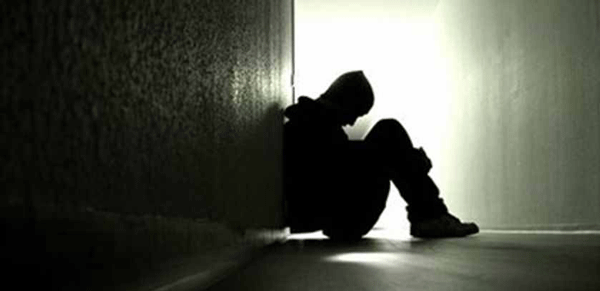Just a quick post, I wrote something for Mental Hellth, a newsletter about mental health and capitalism. The full version is only available to subscribers! Enjoy.
Creativity, Capitalism and Alienation
“Alienation” is not a phrase you will hear in the mental health field often. If you do, it is commonly related to some mental health condition, such as “her depression led her to be alienated from her work and friends.” Alienation is a symptom in mental health, a result of some more serious condition, such as Bipolar or Major Depressive Disorder.
But as I’ve seen more patients over the years and read and absorbed different points of view, I have come to believe that alienation is its own mental health category. It is marked by a lack of feeling or connection to the world and people around them. It is very much a modern, existential condition. In a world where our work life has little meaning, we tend to disconnect and become alienated to those around us. And it is far more common than you think.
Pleasure Vs. Happiness
Recently I’ve been reading and thinking a lot about the brain, happiness and addiction. It’s been eye-opening. Most people’s defintion, I’ve come to realize, relates to pleasure, but do not have a concept of what long-term happiness is.
What’s the difference? Pleasure is short-term. It’s the dopamine kick we get in anticipation and from using something. Examples of pleasure run the gamut from gambling to sex to food to drugs. In all respects our brains from what one point of view is the brain of an addicts. Think of the card player or slot jockey at a casino. Or maybe the heroin addict. Or the cigarette smoker. Or how about the newest addiction, that of our addiction to our phones. Often times we think we have free will and are choosing to do these things. But neurochemically the picture can be interpreted quite differently. It some respects, without realizing, we are just chasing dopamine hit after dopamine hit, slaves when we think we’re free.
Happiness is different. In fact I don’t even like the word happiness because so many people associate it with pleasure. I prefer the Aristotelian word, eudaemonia, which translates roughly to contentment of the human spirit. This sort of contentment of the spirit is not chased by dopamine hits. (For the record, I don’t have anything inherently agains short-term pleasure. I’ve been known to polish off a pint of ice cream and smoke too many cigarettes in my day!) How one reaches eudaemonia is of course different for anyone. I’m almost 40 and I think I’m just fully coming into my own form. But I’ve had to make some changes in my life.
Screw Positive Thinking
A person I know went to a therapist about 10 years ago to work on some issues. During one session, this person discussed their bad luck with dating. This person admittedly was a bit dramatic about the situation, but they lamented how impossible it seemed to find a good partner in New York City. The therapist, looking them dead in the eye, said, "You have to think positively and imagine getting your ideal partner."
"What a bunch of horseshit," I said to them and laughed. I didn't mean to be so harsh, and it caused this person to be taken aback. After all about 10 years ago, and the book "The Secret" was widely popular. "The Secret," if you've never heard of it, suggests that thinking and visualizing about things you want will make them appear in your life. That's the secret. So many people bought and accepted this philosophy as somehow true, the absurdity somehow lost on them. Just because I think about being rich or dating Beyonce with all my energy, doesn't mean it will make it so.
Why Does Goldman Sachs's Have a Diversity Program? The Hidden Problems of Diversity
I found this website yesterday as I scoured the internet. It's a link to Goldman Sachs diversity program. I think most people unquestionably will think this is a good thing. There was a time when I thought it was a good thing as well.
But I see a problem here. It's not even that subtle a problem, but I think we as a society have been trained to look past it. Let me put it this way. Let's say Goldman Sachs achieves a perfect amount of diversity that aligns correctly with the U.S. Population. This means that 14% of their employees are black, just as 14% of the U.S. Population is black. And 50% of their employees are women, just a 50% of the U.S. Population are women. And so on and so on.
I imagine that many of you would rejoice at this news. It would show you that America had started to achieve true equality through diversity. It would be proof that we had started to take the right steps forward in this country, that we were fulfilling the words of our constitution.
The Anxious, College-Educated Millennials
A quick blog post before I head out and enjoy the beautiful weather...
I've noticed a trend recently. I don't have any evidence besides anecdotal evidence though, so I've been hesitant to share my thoughts. But yesterday was a tipping point.
Anyway to the thesis:
Millennials are anxious as hell. I know, I know, everyone is anxious as hell. But there is a particular strand of college-educated, millennial anxiety that seems born from our shitty neoliberal, unequal society.
This anxiety comes from an odd place. It's often about productivity. Productivity is the mandate of capitalism. So many millennials are constantly worried about output in every aspect of their lives. It's as if the model of the factory worker has seeped into every aspect of our lives. And productivity and hard work are the symbols of meritocracy that doesn't really exist.
The lie that these millennials seem to believe more fiercely than older patients is that America is a place of equal opportunity. They believe that everyone is on an equal playing field and that if they work hard enough, their finances and status will improve. That's a lie for a lot of reasons, which I don't want to get into here, but upward mobility has been pretty nonexistence in America for quite a long time. But there is an implicit belief among the younger generation that the more you achieve, the better you are. One's self-worth then is directly tied to what one does and not who one is.
The World Is Better Than Ever. Why Are We Miserable?
Andrew Sullivan recently published an interesting piece in New York Magazine called, "The World Is Better Than Ever. Why Are We Miserable?" It is a topic I've written extensively about on this blog.
Sullivan wonders out loud if everything seems to be getting better, as Steven Pinker argues, why does everyone seem so unhappy? Why are drug use, anxiety, depression, loneliness so ubiquitous? It's a great question.
Sullivan's answer is
"As we have slowly and surely attained more progress, we have lost something that undergirds all of it: meaning, cohesion, and a different, deeper kind of happiness than the satiation of all our earthly needs. We’ve forgotten the human flourishing that comes from a common idea of virtue, and a concept of virtue that is based on our nature. This is the core of Deneen’s argument, and it rests on a different, classical, pre-liberal understanding of freedom. For most of the Ancients, freedom was freedom from our natural desires and material needs. It rested on a mastery of these deep, natural urges in favor of self-control, restraint, and education into virtue. It placed the community — the polis — ahead of the individual, and indeed could not conceive of the individual apart from the community into which he or she was born. They’d look at our freedom and see licentiousness, chaos, and slavery to desire. They’d predict misery not happiness to be the result."
In Praise of Laziness: Finding Joy in a Sea of Anxiety
I have often wondered whether especially those days when we are forced to remain idle are not precisely the days spend in the most profound activity. Whether our actions themselves, even if they do not take place until later, are nothing more than the last reverberations of a vast movement that occurs within us during idle days.
In any case, it is very important to be idle with confidence, with devotion, possibly even with joy. The days when even our hands do not stir are so exceptionally quiet that it is hardly possible to raise them without hearing a whole lot.”
Pay Attention, Pay Attention, Pay Attention: Five Ways to Reclaim your Attention in a Distracted World
“We seldom realize, for example that our most private thoughts and emotions are not actually our own. For we think in terms of languages and images which we did not invent, but which were given to us by our society.”
"The average American throws away 65 pounds of clothing per year." -Huffington Post
Early in Matthew Crawford’s “The World Beyond Your Head” the author walks through an airport. Maybe for the first time, he notices the bombardment of advertising everywhere. There are the billboards and TVs. The signs of restaurants, the ads in his Forbes Magazine, the ads on the podcast he’s listening to or in front of the bathroom stalls. Even the backs of chairs have deals to the local hotels and clothing stores. Each is expertly designed to get his attention, designed by professionals who know just the right colors and sounds and fonts and pictures to get you to notice what they’re selling.
Minimalism and Simplicity in a Capitalist World
I do believe in simplicity. It is astonishing as well as sad, how many trivial affairs even the wisest thinks he must attend to in a day; how singular an affair he thinks he must omit. When the mathematician would solve a difficult problem, he first frees the equation of all incumbrances, and reduces it to its simplest terms. So simplify the problem of life, distinguish the necessary and the real. Probe the earth to see where your main roots run.
— Henry David Thoreau
Lately I have been thinking and reading about living a minimalist life. My ideas aren't fully fleshed out yet, and I am not fully sure how to implement them into my own life yet. But the thoughts are brewing. My mind has felt cluttered lately, a cup filled to the brim and spilling out with concerns that often feel meaningless and unnecessary to living an essential life.
I often wonder how we all got here. I don't have any comprehensive or perfect answers. But I do know this: in session after session with depressed patients, the word "should" is uttered often. I should be skinnier, or have a better job, or a better apartment or I should have six-pack abs like Zac Efron or should have dresses like the one Michelle Obama wore at her convention speech.












